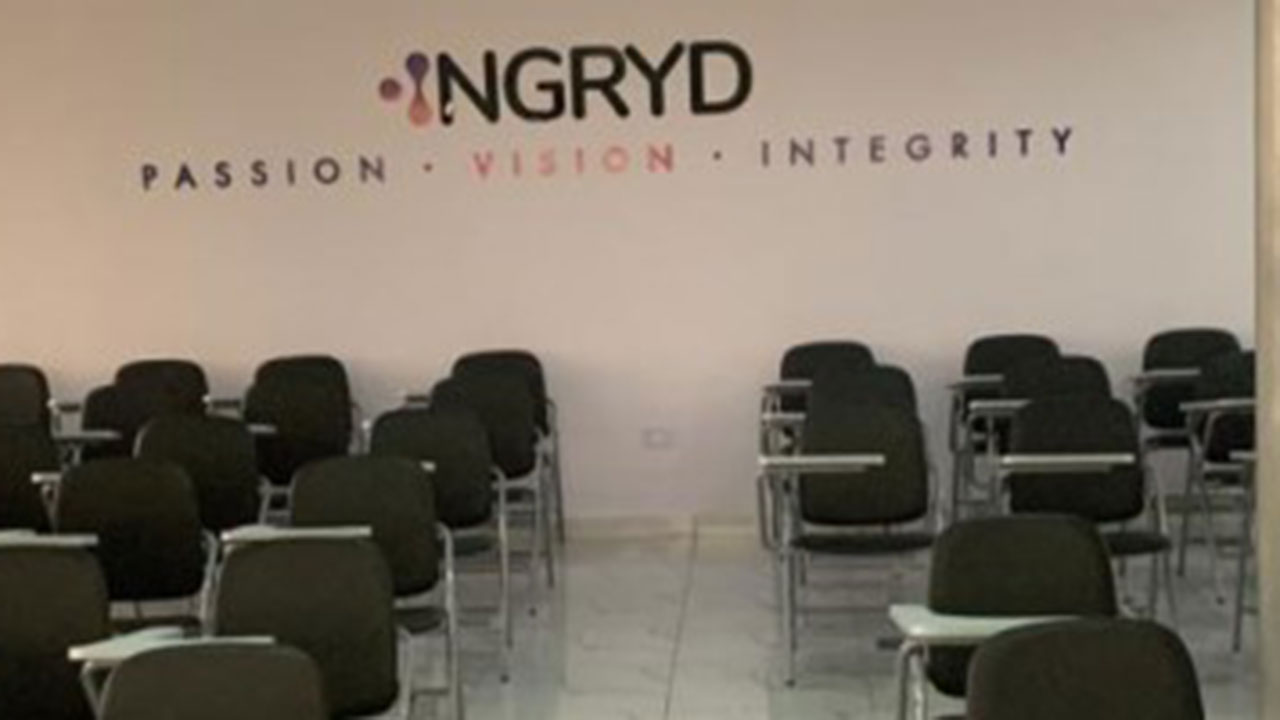The INGRYD Academy has pledged to tackle Nigeria’s digital skills crisis, lamenting that over 80 per cent of local tech talents lack access to proper learning and professional certification, a key barrier to their global employability.
To address this, INGRYD on Friday unveiled a five-year partial scholarship initiative to train and certify 40,000 Nigerian youths in globally recognised tech skills. The training will be provided in partnership with ISACA, a global IT governance and certification body, with certifications that offer access to work opportunities in 190 countries.
Founder and Chief Executive Officer, INGRYD Academy, Khadijat Abdulkadir, announced the initiative during a press briefing in Lagos, stating, “INGRYD has an exclusive partnership with ISACA as an academic partner to provide training and certify youths for $250. This is over 70 per cent off the actual cost.”
According to Abdulkadir, most young people who pursue careers in technology cannot break into the global workforce because they lack the professional credentials employers demand.
She said, “The major challenge isn’t that they are not good or trained. The problem is the absence of proper certification. If you say you’ve been a software engineer for five years, companies abroad still ask, Where did you study? What certifications do you hold? That’s the real gap.”
INGRYD Academy’s CEO observed that Nigerian talents face a digital crisis, adding “Even though there’s a hype around getting remote jobs today, the reality for more than 80 per cent of the young people is that they don’t have access to that market.”
She noted that visa costs and high costs of certifications, among others, have lowered the chances of Nigerians getting global opportunities. Abdulkadir noted that while certifications in Europe cost between $1,000 and $2,000, INGRYD has taken on the financial burden to reduce the barrier to entry for Nigerians.
The academy, which operates across three continents, Europe (Netherlands), North America (Texas), and Africa (Nigeria), affirmed that its goal is to make Nigerian tech talent globally competitive. “We want to provide competitive access to the market for tech talent and access to the right talent for organisations,” she declared.
Abdulkadir revealed that INGRYD has trained over 8,000 people and processes thousands of applications yearly. She added that placement remains a challenge as only 37 per cent of trainees currently get jobs, with plans to increase that figure to at least 70 per cent.
As part of the five-year initiative, the academy will train a minimum of 2,000 Nigerians every quarter in core digital skills such as full-stack software engineering, data science with Python and R, artificial intelligence, machine learning, blockchain, cloud computing, IoT, DevOps, DevSecOps, agile product management, cybersecurity, IT solution sales, and data analysis.
Each training course will span three to six months, be instructor-led, and offer participants daily interactive sessions with certified professionals. Abdulkadir noted that fees range from N150,000 to N500,000, depending on the course, with instalment payment options available.
The academy also noted that its graduates will benefit from a one-year free ISACA global membership, offering access to a network of over 85,000 professionals. “This means real access to the market. Our certified students can work in 190 countries. That is a major opportunity,” Abdulkadir remarked.
On visa barriers and remote job limitations faced by Nigerians, Abdulkadir explained that INGRYD also supports students with visa processes once they secure jobs abroad, leveraging its international presence to smooth placement pathways.
“If you don’t have a visa to go to a country, they usually consider you a risk because the total cost of actually applying for a visa for you requires you to pay a minimum of $80,000.
“Because of biases against Nigerian candidates and the cost implications for companies abroad, remote jobs are not as accessible as they seem. What we offer is training, certification, job access, and visa support, all in one ecosystem,” she stated.
Meanwhile, INGRYD’s CEO emphasised the academy’s instructor-led model. “We don’t believe in self-paced learning. Every student engages live with an instructor daily. That is what drives real skill development.”
Abdulkadir further argued that many multinationals operating in Nigeria employ foreign tech experts due to a lack of local professionals with advanced certifications. “Even local organisations like Dangote Refinery and several banks are hiring Indians for senior tech roles that Nigerians could be doing, if only they were qualified.”
The academy reaffirmed that all certifications under the new initiative are ISACA-accredited and globally respected. It also announced that it is now a CheckPoint-certified partner and plans to roll out more partnerships in the coming months.
INGRYD’s initiative comes at a time when stakeholders across Nigeria’s tech and employment landscape are grappling with high youth unemployment despite a growing demand for digital skills in sectors ranging from fintech to manufacturing.
By taking on the cost of training and certification, Abdulkadir said INGRYD is offering “a realistic path out of unemployment for thousands of young Nigerians.”
“This is not charity. It’s a deliberate strategy to build a skilled, export-ready digital workforce for Nigeria,” she added.




